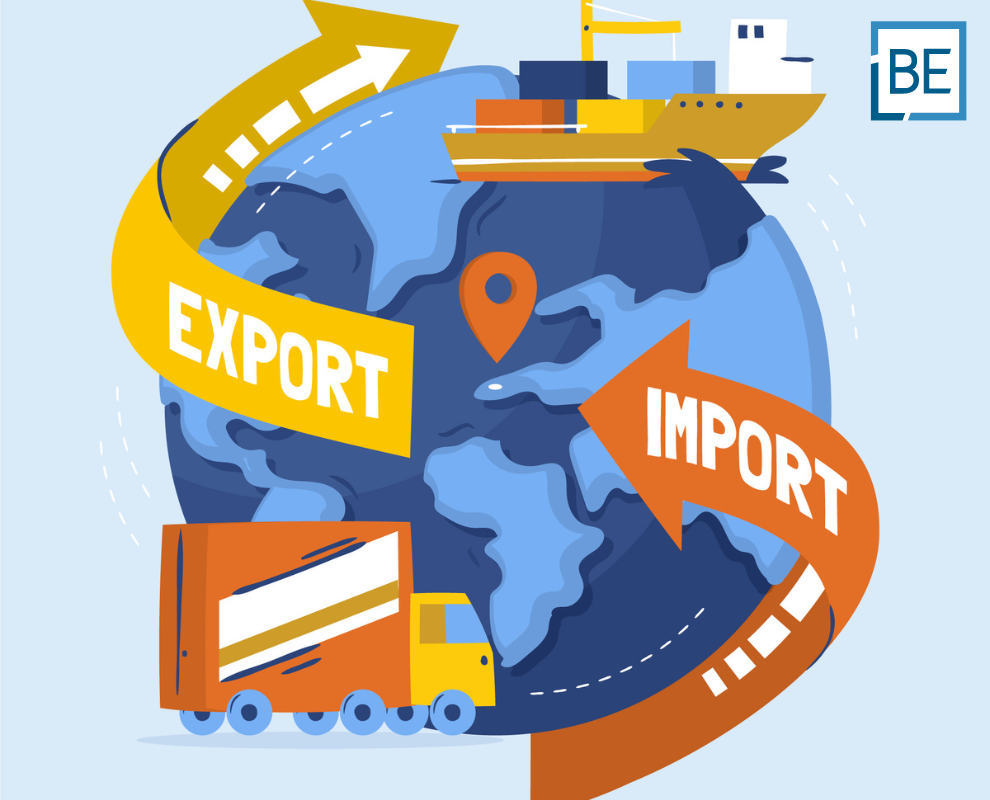Legal
Comment obtenir une licence d'import/export en Thaïlande ?
31/10/2022
Les entreprises d'import/export sont un choix prisé par de nombreux entrepreneurs à travers le monde. Le marché thaïlandais offre de nombreux produits qui ne sont pas disponibles à l'étranger et vice versa. Bien que l'import/export de marchandises soit une activité très intéressante, ces sociétés doivent obtenir certaines licences commerciales pour pouvoir opérer légalement.Toutefois, la licence requise dépend de la catégorie de marchandises importées ou exportées.
Pour plus d'informations sur les licences commerciales en Thaïlande, veuillez consulter notre article de blog sur le sujet ici.
Points clés
- Toute entreprise ou individu importateur ou exportateur de produits, biens ou matières premières en Thaïlande doit obligatoirement obtenir une licence douanière d'import/export électronique.
- Certains produits sont interdits à l'importation ou exportation et d'autres peuvent nécessiter des licences spécifiques.
- Les sociétés à capitaux 100 % étrangers peuvent exporter sans licence en Thaïlande, tant qu'il n'y a pas de distribution sur le territoire thaïlandais.
Qu'est-ce qu'une licence d'import/export ?
Toute entreprise ou individu engagé dans l'importation et l'exportation de produits, biens et matières premières en Thaïlande doit s'inscrire auprès des douanes thaïlandaises et obtenir une licence douanière d'import/export électronique. Les entreprises doivent absolument obtenir cette licence pour pouvoir importer ou exporter des marchandises en leur nom.
De plus, il est important de noter que l'importation et exportation de marchandises soumises à des contrôles peut nécessiter d'autres licences spécifiques délivrées par les organismes de régulation, en fonction du type de produits.
Licence d'importation et réglementations
Le ministère thaïlandais du Commerce précise que certaines marchandises peuvent nécessiter une licence supplémentaire, en plus de la licence d'import/export, avant que les entreprises puissent les importer.
Actuellement, environ 50 catégories de marchandises requièrent une licence d'importation et sont assujetties à d'autres réglementations conformément à diverses lois. C'est notamment le cas de :
- L'importation et l'exportation de substances chimiques dangereuses qui nécessite une licence obtenue auprès du ministère de l'Industrie.
- L'importation d'appareils électroniques à fréquence radar nécessite une autorisation délivrée par le département national de la radiodiffusion et des télécommunications de Thaïlande.
- Pour l'importation de produits pharmaceutiques (médicaments), une autorisation du "Food and Drug Administration" du ministère de la Santé est requise.
- L'importation et l'exportation de minéraux en Thaïlande sont soumises à l'obtention d'une licence auprès du ministère des ressources minérales.
- Les antiquités, les objets d'art et les objets historiques ne peuvent être expédiés sans l'autorisation du directeur général des beaux-arts.
- La production, l'achat, l'utilisation ou l'importation d'armes, de munitions, d'explosifs, de feux d'artifice et d'armes à feu prohibées sont interdits, à moins qu'ils ne soient accompagnés d'une licence appropriée délivrée par le ministère de l'Intérieur.
- L'importation de produits cosmétiques doit être accompagnée du nom et de l'emplacement du bureau et du lieu de fabrication des produits, ainsi que de leur nom et de leur composition pour protéger la santé publique.
- L'importation de bois, de bois de construction et des produits du bois en provenance des pays voisins de la Thaïlande par voie terrestre doit être accompagnée d'un certificat d'origine ou d'une licence d'exportation des pays exportateurs.
- L'importation des herbes contrôlées en vertu des règlements ministériels, comme le cannabis, nécessite l'obtention d'une licence d'import/export.
Comment obtenir une licence d'import/export ?
1 - Enregistrez votre entreprise pour utiliser le système "e-Customs"
Toutes les opérations d'importation et d'exportation de marchandises en Thaïlande sont gérées à travers le système en ligne e-Customs.
Pour accéder à ce système, les entreprises doivent d'abord obtenir un certificat numérique, qui servira à authentifier l'identité de l'utilisateur.
L'inscription à ce système douanier électronique peut être réalisée directement par l'entreprise ou par l'intermédiaire d'un agent.
Pour s'enregistrer dans le système e-Customs, l'entreprise doit :
- Installer le logiciel e-Customs sur les systèmes de l'entreprise
- S'inscrire auprès du bureau de douane thaïlandais
- Tester et vérifier que le système e-Customs est actif et peut être utilisé par l'entreprise.
Une fois la procédure d'enregistrement terminée, le Bureau des communications et des technologies de l'information délivre à l'entreprise un numéro d'enregistrement pour la douane électronique.
2 - Examiner les marchandises contrôlées
Comme mentionné précédemment, certains biens et produits sont soumis à des contrôles et nécessitent l'obtention de permis supplémentaires avant de pouvoir être importés ou exportés. Il est essentiel que les entreprises vérifient auprès du service des douanes si les marchandises qu'elles envisagent d'importer ou d'exporter nécessitent un permis.
Marchandises de la "Red Line"
La Thaïlande classe les marchandises de la "Red Line" comme celles présentant un risque élevé ou nécessitant des vérifications et des certifications supplémentaires.
Il est important de noter qu'il n'existe pas de liste définitive de ces marchandises. La décision de les classer dans cette catégorie sera prise lors de la demande (plus d'informations à ce sujet sont disponibles ci-dessous au point 3).
Les produits alimentaires, les boissons et les plantes sont des exemples courants de marchandises relevant de la "Red Line". Si une entreprise prévoit d'importer de tels produits, elle devra être en mesure de fournir un certain nombre de documents justificatifs, tels que :
- La lettre de transport ou la lettre de transport aérien
- La facture
- La liste de colisage
- La licence d'importation
- Les certificats d'origine
- Autres documents pertinents (par exemple, liste des ingrédients, certificats de normes techniques, etc.)
Exportation de produits de la "Red Line"
Si une entreprise prévoit d'exporter des marchandises de la "Red Line", des documents supplémentaires tels que les suivants seront nécessaires :
- La facture
- Licence d'exportation
- Autres documents pertinents (par exemple, approbation de l'administration des denrées alimentaires et des médicaments, informations sur la destination, etc.)
3 - Dépôt et vérification d'une déclaration
Toutes les entreprises impliquées dans l'import/export sont tenues de soumettre une déclaration d'importation ou d'exportation. Cette déclaration comprend les pièces justificatives suivantes :
- Demande K1 (pages 1 et 2)
- Copie mise à jour de la déclaration sous serment de la société (datant de moins de six mois)
- Deux copies du certificat de taxe sur la valeur ajoutée (Form Phor Phor 20)
- Copie de la première page du relevé bancaire et du compte bancaire
- Copie de l'enregistrement du sceau (Form BAJ 3)
- Copie du passeport
- Procuration (page 3 de la demande K1)
La présentation de ces documents permettra de déterminer si les marchandises contenues dans l'envoi relèvent de la "Red Line" ou de la "Green Line". De plus, ces documents seront utilisés pour calculer les droits, les tarifs douaniers et évaluer les marchandises.
4 - Paiement des droits et taxes
Les droits et taxes d'importation et d'exportation doivent être réglés par transfert électronique de fonds via BAHTNET, la Kung Thai Bank et l'EDI (Electronic Data Interchange) de la Banque de Thaïlande. Si cela n'est pas possible, le paiement peut être effectué en personne au département des douanes.
- Les produits importés/exportés en Thaïlande sont soumis à des droits de douane en Thaïlande. Le taux des droits à l'importation est appliqué par le système harmonisé.
- Ces droits sont calculés en fonction de la valeur CIF (Cost, Insurance, Freight) ou de la valeur FOB (Free On Board), ou des deux, en fonction de la valeur la plus élevée.
- Des incitations fiscales sont offertes sous forme d'exonérations fiscales, de remboursements d'impôts, de promotions des investissements, etc.
- Certaines exemptions de droits de douane s'appliquent à l'importation/exportation de certains produits.
- Les documents relatifs aux droits de douane doivent être conservés pendant cinq ans à compter de la date d'importation ou d'exportation, et durant deux ans après la dissolution de la société.
5 - Inspection et libération des marchandises
Une fois toutes les formalités ci-dessus accomplies, les autorités douanières thaïlandaises demandent à l'importateur/exportateur de soumettre la déclaration vérifiée (accompagnée d'un reçu de paiement des droits et taxes) à l'entrepôt. Une fois ces documents reçus, la cargaison est inspectée avant d'être libérée.
Pour les marchandises de la "Green Line", un simple contrôle en ligne suffit. En revanche, les marchandises de la "Red Line", y compris les documents justificatifs et la cargaison elle-même, sont inspectées physiquement par les fonctionnaires des douanes.
Il est essentiel que toutes les marchandises inspectées correspondent à la déclaration soumise.
Combien de temps dure la procédure de demande ?
En règle générale, les entreprises peuvent s'attendre à recevoir une décision dans un délai d'un jour après avoir soumis la demande.
La licence d'importation/exportation est valable pour une période de trois ans.
Quels sont les documents requis ?
Les documents requis pour une licence d'importation/exportation sont les suivants :
- Demande K1 (seulement la 1ʳᵉ et la 2ᵉ pages)
- Copie de la déclaration sous serment de la société (mise à jour dans les six mois)
- Deux copies du certificat de taxe sur la valeur ajoutée (PP 20)
- Copie de la première page du relevé bancaire et du compte bancaire
- Copie de l'enregistrement du sceau (Form BAJ 3)
- Copie du passeport
- Procuration (3e page du KSK 1)
Comment Belaws peut-il vous aider ?
Pour plus d'informations sur les licences d'importation et d'exportation en Thaïlande, pourquoi ne pas discuter avec l'un de nos experts ?
Veuillez noter que cet article est fourni à titre d'information seulement et ne constitue pas un avis juridique.
Nos consultations durent jusqu'à une heure et sont menées par des juristes experts qui parlent couramment l'anglais, le français et le thaï.
Les consultations peuvent être organisées sur WhatsApp ou sur le Logiciel de Vidéoconférence de votre convenance. Une consultation avec l’un de nos experts juridiques est sans aucun doute le meilleur moyen d’obtenir toutes les informations dont vous avez besoin et de répondre à toutes les questions que vous pourriez avoir sur votre nouvelle entreprise ou votre projet.
150 USD
Jusqu'à 1 heure
Paiement en ligne (Paypal ou carte bancaire)
Les consultations juridiques peuvent être menées en anglais, en français ou en thaï.
Les consultations juridiques sont assurées par des des avocats expérimentés dans les domaines concernés.
Questions fréquemment posées
Un étranger peut-il créer une société en Thaïlande ?
Oui, il est possible pour un étranger d'ouvrir une entreprise en Thaïlande. Il existe également des options permettant de créer des entreprises détenues à 100 % par des étrangers.
Combien coûte la création d'une entreprise en Thaïlande ?
Les frais officiels d'enregistrement d'une société en Thaïlande s'élèvent à 7 500 THB.
Comment créer une société à responsabilité limitée en Thaïlande ?
- Étape 1 : Choisir et enregistrer un nom de société.
- Étape 2 : rédiger et déposer l'acte constitutif.
- Étape 3 : convoquer et tenir une assemblée statutaire des actionnaires.
- Étape 4 : Enregistrer la société auprès du Ministère du Commerce.
- Étape 5 : Immatriculer la société à la taxe sur la valeur ajoutée (TVA) et l'impôt sur le revenu.
Est-ce une bonne idée de commencer une entreprise en Thaïlande ?
La Thaïlande est une option attrayante pour ceux qui souhaitent créer une entreprise. Elle dispose d’une excellente infrastructure, et des programmes tels que le BOI offrent des incitations importantes aux entreprises.
De quel montant avez-vous besoin pour créer une entreprise en Thaïlande ?
En règle générale, la création d'une entreprise en Thaïlande coûte entre 40 000 et 60 000 THB (hors TVA et taxes gouvernementales). Les frais officiels d'enregistrement d'une société en Thaïlande s'élèvent à 7 500 THB.
Comment un étranger peut-il créer une petite entreprise en Thaïlande ?
Oui, les étrangers peuvent créer une entreprise en Thaïlande. Cependant, certaines activités commerciales sont restreintes par la loi sur les entreprises étrangères (le Foreign Business Act) et pour pouvoir entreprendre dans ces secteurs d’activités les entreprises doivent obtenir une licence/certificat d’entreprise étrangère, ce qui peut être long et compliqué.
Quel est le plus grand problème de la Thaïlande ?
Le principal problème auquel sont confrontées les entreprises étrangères est de pouvoir entreprendre l'activité commerciale souhaitée en tant qu'entreprise détenue à 100 % par des étrangers. De nombreuses activités commerciales sont protégées par la Loi sur les Entreprises Étrangères (Foreign Business Act) et pour qu'une entreprise puisse opérer dans ces secteurs protégés, elle devra être détenue majoritairement par des actionnaires thaïlandais (à moins qu'une promotion du BOI n'ait été obtenue).
Pourquoi est-il difficile de faire des affaires en Thaïlande ?
La loi sur les entreprises étrangères (Foreign Business Act) limite les activités commerciales qu'une société détenue à 100 % par des étrangers peut entreprendre. Cela signifie qu'il faut rechercher des actionnaires thaïlandais ou obtenir une promotion du BOI pour qu'une société puisse fonctionner légalement.
Est-ce que je peux être propriétaire d'une société en Thaïlande?
Oui, les étrangers peuvent créer une entreprise en Thaïlande. Cependant, certaines activités commerciales sont restreintes par la loi sur les entreprises étrangères (le Foreign Business Act) et pour pouvoir entreprendre dans ces secteurs d’activités les entreprises doivent obtenir une licence/certificat d’entreprise étrangère, ce qui peut être long et compliqué.
Articles connexes
Abonnez-vous aujourd'hui
Abonnez-vous aujourd'hui
À notre newsletter pour les dernières actualités juridiques
en Asie du Sud-Est, les mises à jour de Belaws et
les offres spéciales sur nos services.
To our newsletter today for all the latest legal news in South East Asia,
Belaws updates and special promotions on our services.







